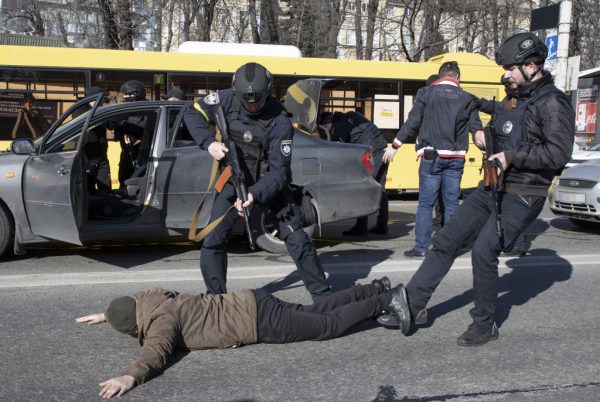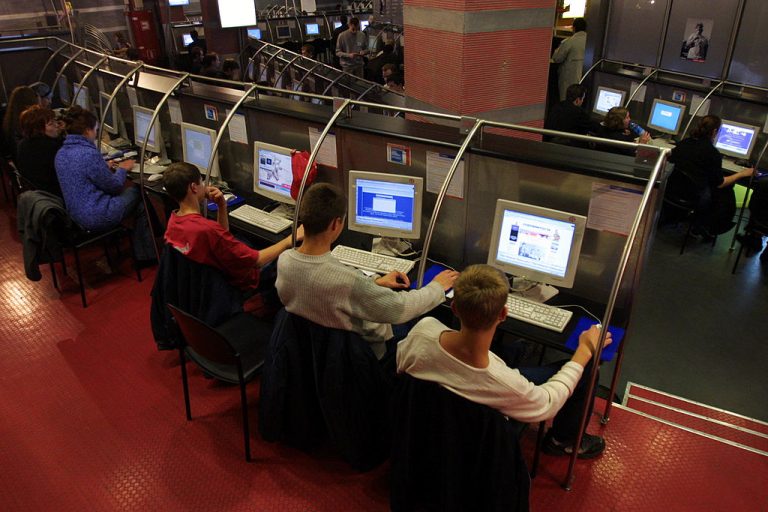After a week of threats and half-measures, Russia’s government has officially blocked Facebook and will continue to restrict Twitter and Instagram from the tens of millions of users in the country who use these social media platforms everyday.
“In March 2022, a decision was made to block access to the Facebook network (owned by Meta Platforms, Inc.) in the Russian Federation,” a statement from Roskomnadzor, Russia’s communications regulator, announced on March 4.
Russia’s government said its decision to cut off Facebook from Russian users was intended “to prevent violations of the key principles of the free flow of information and unhindered access of Russian users to Russian media on foreign Internet platforms.”
Roskomnadzor added that Facebook had limited access to state media channels such as RT and Sputnik, and accused the social media giant of more than two dozen cases of “discrimination” against Russian outlets and for enabling the “spread of misinformation” regarding the situation in Ukraine.
RELATED:
- Ukraine: Russia Prepares Second Invasion Force to Encircle Key Cities, Shift Focus of Attack
- Zelensky Says NATO ‘Weak’ for Not Imposing No-Fly-Zone in Ukrainian Airspace
- Russia Blocks Big Tech Keystones Twitter, Facebook Amid Escalating Information War
- Blinken: NATO Countries Have ‘Green Light’ to Send Fighter Jets to Ukraine
In addition, TikTok and Netflix have announced the suspension of their services starting this week, and YouTube is suspected of following in the same footsteps with a similar announcement to follow suit. Apple, Samsung, Microsoft, Oracle, Cisco and others have also pulled back or withdrawn entirely from Russia. Even online video games like Minecraft are no longer available in the country.
Success
You are now signed up for our newsletter
Success
Check your email to complete sign up
The move comes at a time when the Russian government is unsurprisingly increasing its crackdown on the free press and other sources of information to control the narrative about its ongoing invasion of Ukraine — which Russian media is not allowed to call a war, but instead a “special military operation.”
Thousands of Russians who oppose the war have been arrested.

In the past few weeks, the few remaining independent local news outlets in Russia that are not government-affiliated have also been shut down, and Russian President Vladimir Putin signed a new law on March 4 that threatens up to 15 years in jail for Russians who post “fake news” about the invasion.
Increasing digital isolation
For now, Russians can still find alternative news sources such as YouTube and communicate on apps like Telegram — one of the most popular social media apps in Russia — but the government’s growing digital barricade threatens to eradicate these small pockets of independent information completely.
“Censoring is too modest of a word right now for what they’re doing,” said UC Irvine law professor and former U.N. special liaison for free speech David Kaye.
Facebook’s president of global affairs Nick Clegg previously complained that the Russian government was trying to stop the social media giant from implementing its “independent fact-checking efforts,” and on March 4 posted a statement on his Twitter account in response to the Kremlin’s decision to completely shut down Facebook.
“Soon millions of ordinary Russians will find themselves cut off from reliable information, deprived of their everyday ways of connecting with family and friends and silenced from speaking out,” Clegg tweeted.
He also encouraged Russians to “express themselves and organize for action,” saying that Facebook would “do everything we can to restore our services” in the country.
Since the invasion of Ukraine began on Feb. 24, the Russian ruble has plunged more than 30 percent and hit an all-time low of 109.55 against the dollar on March 2. Russian stocks have also seen massive sell-offs and sweeping sanctions placed against the country’s oligarchs and businesses have sent the world’s largest country into a near complete economic collapse.
Propaganda on both sides of the conflict has created much uncertainty with regards to the situation on the ground in Ukraine. For example, Ukrainian authorities have claimed more than 10,000 Russian soldiers killed in the war, while Russia on March 2 admitted to the deaths of just 498 servicemen; the Pentagon estimated a number in the low thousands.
Meanwhile, stories like “the Ghost of Kyiv” — a supposed Ukrainian fighter ace who downed multiple enemy planes in a few hours of combat — and the later-disproved account of 13 Ukrainian border guards who died rather than surrender to the Russians, have made the rounds on social media.














